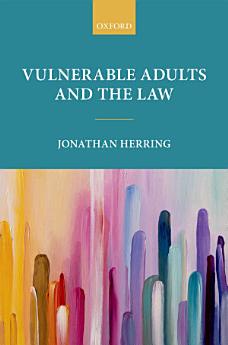Vulnerable Adults and the Law
2016年1月 · Oxford University Press
電子書
240
頁
family_home
符合資格
info
report評分和評論未經驗證 瞭解詳情
關於本電子書
We are used to thinking that most people have the capacity to make their own decisions; that they should be free to decide how to live their lives; and that it is a good thing to be self-sufficient. However, in an examination of the legal position of vulnerable adults, understood as those who have capacity under the Mental Capacity Act 2005 but are deemed impaired through vulnerability in their exercise of decision making powers, Jonathan Herring challenges that assumption. Drawing on feminist and disability perspectives he argues that we are all in fact, 'vulnerable' and we need to replace the competent, able-bodied, independent person as the norm which the law is based on and instead fashion which recognises our interdependence and mutuality. At the heart of the law is a distinction between those who have capacity and those who do not. Those who have capacity are given the full rights of the law; they are entitled to enter contracts, dispose of their property, are able to marry. Those who are deemed to lack capacity are unable to make these decisions. Their decisions are made on their behalf based on an assessment of what is in their best interests. This approach is underpinned by the principle of autonomy, and is problematic for those who are deemed 'vulnerable'. The Court of Protection and the Court of Appeal have developed a jurisdiction to deal with cases involving vulnerable adults which has been used in a wide range of cases from those involving people with early stage dementia to cases of forced marriage. This development of law has proved controversial and the courts have struggled to draw its limits and explain the justification for it. Jonathan Herring welcomes the courts willingness to protect vulnerable adults through the inherent jurisdiction, but argues that we need to go much further. It is not just particular groups such as 'the elderly' or 'the disabled' who are vulnerable, but rather vulnerability is part of the human condition. This means that caring relationships are of central significance to our society and should be at the heart of the legal system.
關於作者
Jonathan Herring is a Fellow in Law at Exeter College, Oxford University and Professor of Law at the Law Faculty, Oxford University. He has written on family law, medical law, criminal law, and legal issues surrounding care and old age. His books include: Caring and the Law (2014) Older People in Law and Society (OUP, 2009); European Human Rights and Family Law (Hart, 2010) (With Shazia Choudhry); Medical Law and Ethics (OUP 2014); Criminal Law, (OUP, 2014); Family Law (Pearson, 2015); and The Woman Who Tickled Too Much (Pearson, 2009).
為這本電子書評分
歡迎提供意見。
閱讀資訊
智慧型手機與平板電腦
筆記型電腦和電腦
你可以使用電腦的網路瀏覽器聆聽你在 Google Play 購買的有聲書。
電子書閱讀器與其他裝置
如要在 Kobo 電子閱讀器這類電子書裝置上閱覽書籍,必須將檔案下載並傳輸到該裝置上。請按照說明中心的詳細操作說明,將檔案傳輸到支援的電子閱讀器上。








